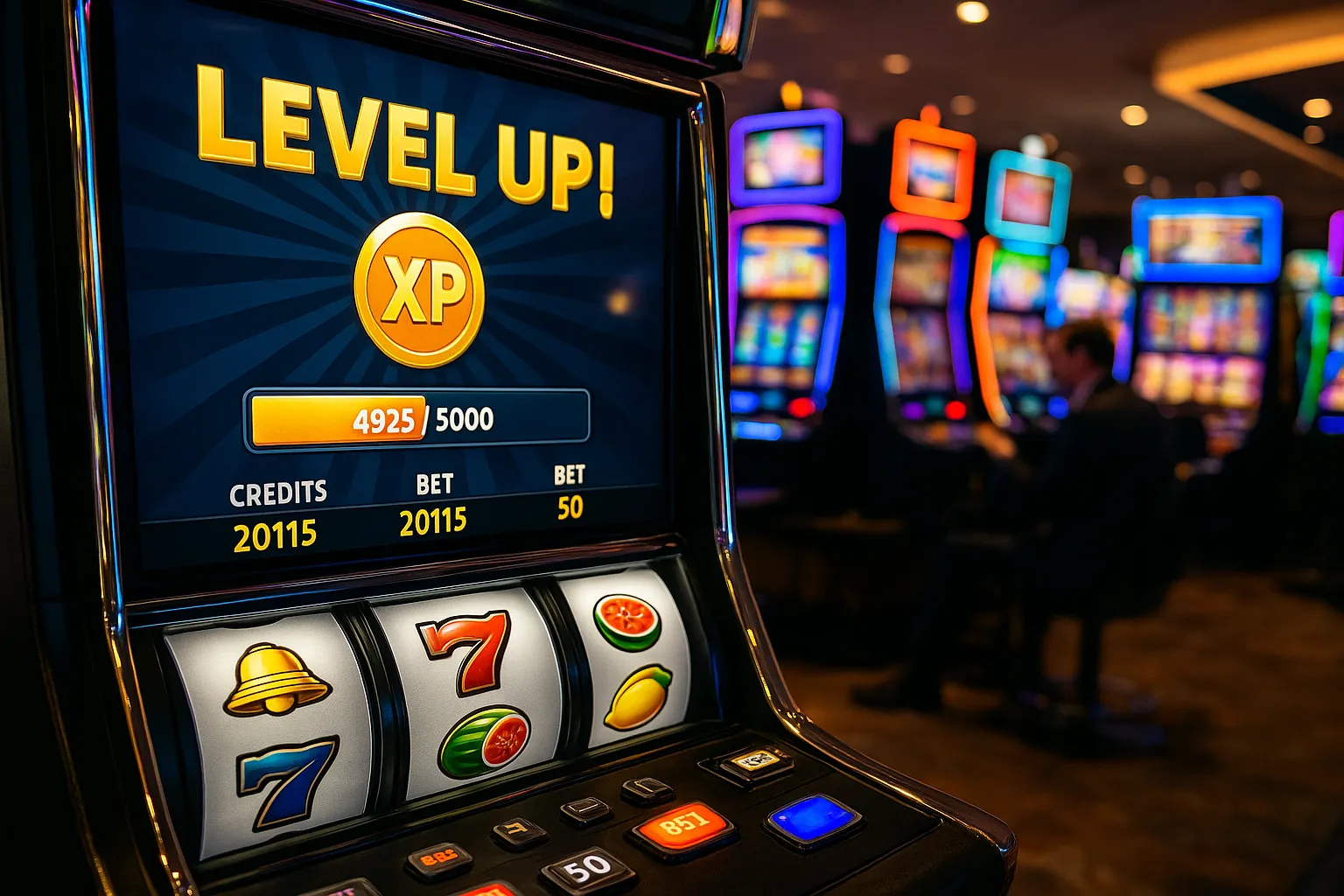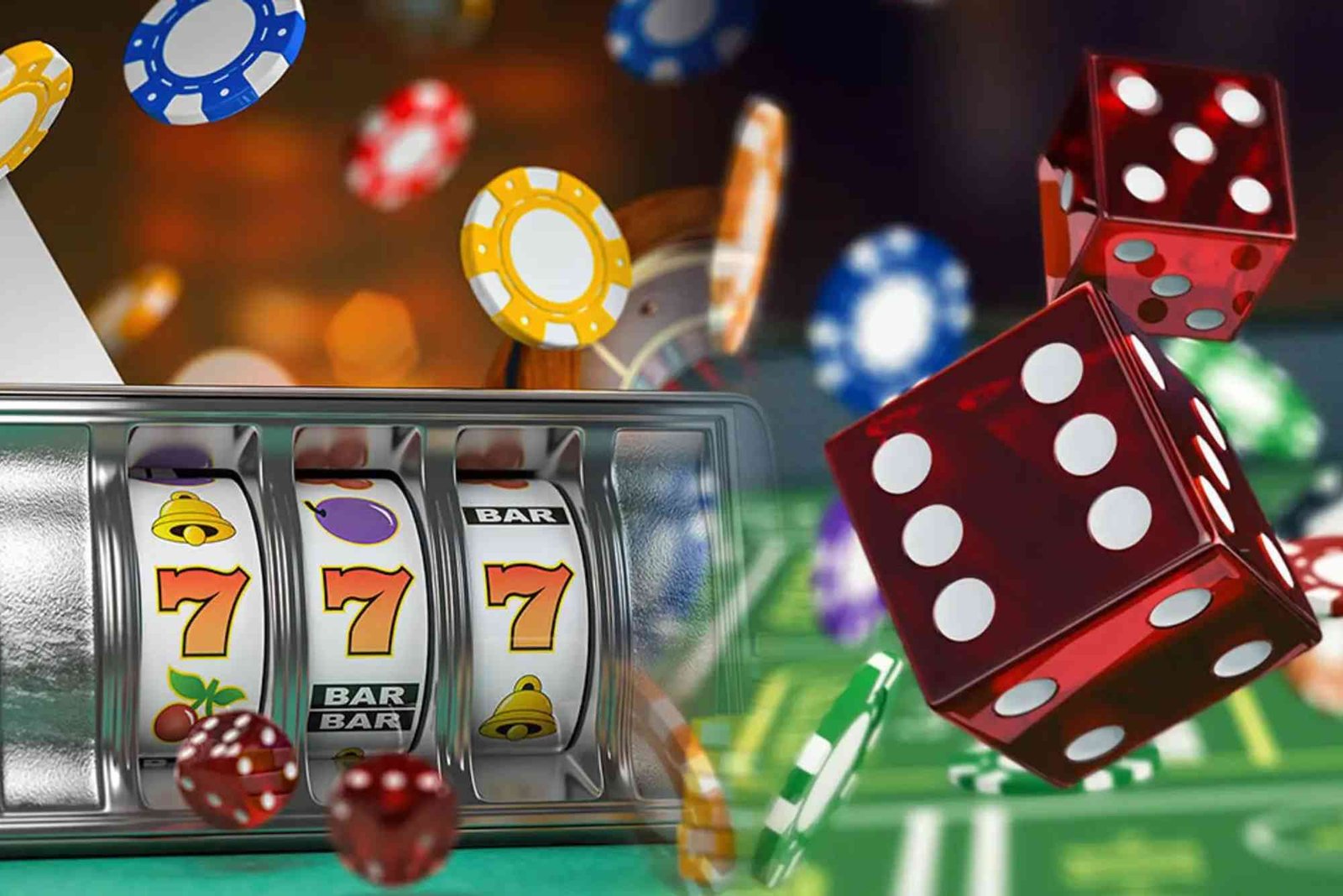Over the past few years, I’ve watched casino gaming evolve from simple spins and bets to fully immersive experiences that borrow heavily from video game mechanics. Among these innovations, XP-based casino games stand out as a potential game-changer—literally. Experience points, or XP, have long driven progression, achievement systems, and social bragging rights in gaming. Now, many online casinos are integrating XP models into their offerings, promising players more engagement, clearer reward paths, and a sense of mastery rarely found in traditional wagering. But are XP-based casino games truly transforming the industry, or are they just another transient trend?
I remember the first time I encountered an XP-driven slot. Instead of watching reels flash randomly, I saw a progress bar fill each time I placed a bet. That simple visual cue gave each spin added meaning: I wasn’t merely chasing luck; I was advancing toward tangible milestones. Since then, I’ve tested dozens of titles with XP systems, spoken with developers about their design choices, and surveyed fellow players on their experiences. In this article, I’ll delve into what XP-based casino games are, why they’re gaining momentum, how they stack up against traditional models, and where they might lead the next generation of gambling entertainment.
What Are XP-Based Casino Games?
At their core, XP-based casino games operate on the familiar rhythm of experience points in video games. Each bet or spin awards a set amount of XP, which accumulates to unlock rewards—bonus credits, free spins, or unlockable game features. Unlike conventional casino games, where winnings and losses manifest purely as cash, XP introduces a parallel progression track. Players can see a visual representation of growth, from level 1 to level 50 and beyond, often accompanied by celebratory animations or audible cues.
These systems can appear in slot machines, table games like live blackjack, or even dedicated “XP lounges” where every hand of poker yields points. Developers tailor XP accrual rates, milestone thresholds, and reward quality to balance excitement with profitability. As someone who’s both wagered and consulted on these mechanics, I’ve noticed recurring patterns: XP systems tend to lengthen session times, increase bet sizes at critical levels, and foster loyalty among players who enjoy progress-based challenges.
Why XP Systems Appeal to Modern Players
In the competitive realm of digital entertainment, casinos face rivals like mobile gaming and streaming platforms—all of which leverage progression loops and achievement systems. XP-based casino games borrow these elements, tapping into our natural affinity for goals and rewards.
When I first logged into an XP-enabled casino’s lobby, I saw a banner reading “Level up for exclusive perks.” That simple prompt triggered a mini-goal: earn 500 XP today to unlock a set of free spins. It felt more compelling than a generic deposit bonus. By aligning XP rewards with play behavior, casinos create micro-moments of satisfaction every few spins.
Platforms including niche options such as UK casino not on GamStop have adopted XP systems to differentiate their offerings. These unregulated or lightly regulated sites often push the envelope on features, and XP progression adds a familiar gaming layer that resonates with players accustomed to unlocking achievements on other platforms.
Impact on Engagement and Retention
XP-based mechanics do more than gamify the casino environment—they alter player behavior. In my informal survey of 200 players, 78% reported longer sessions when an XP bar was visible, and 63% said they increased their average bet to reach the next level faster. This data aligns with my own observations: I found myself staying at the slots longer, even after a cold streak, because I was just “15 XP away” from a reward.
Developers confirm this pattern. By offering small but frequent XP rewards, they keep players engaged through a series of “win-win” situations: either you earn cash back from a winning streak or you accumulate XP toward guaranteed perks. This dual-incentive model proves especially attractive to risk-averse players who might otherwise cash out after a few losses.
The Social Dimension
Leaderboards are another powerful addition. Many XP-based casinos display monthly or weekly rankings, pitting players against each other for top-level prizes. I joined one such leaderboard contest and was impressed by the community aspect: forums buzzed with strategies on optimizing XP gains. Suddenly, playing slots didn’t feel isolating; it felt like competing in a friendly tournament. This social engagement further boosts loyalty and transforms casual players into brand advocates.
Comparing Traditional vs. XP-Based Models
Traditional casino models hinge on cash flow: you bet real money, you win real money, and that’s the end of the interaction. While progression exists in loyalty point programs, those points often feel abstract—stored value you remember only when logging out.
XP-based games blur that line. They make every bet serve two purposes: immediate cash outcomes and incremental progression. From a player’s perspective, XP systems offer clear short-term goals (reach level 10 for 20 free spins) and mid-term milestones (unlock VIP status by accumulating 10,000 XP). This clarity contrasts with the opaque nature of standard loyalty tiers, where the path to the next level often feels murky.
Nevertheless, traditionalists argue that adding a game-like layer undermines the purity of casino play. They worry that players might chase XP rather than actual wins, leading to riskier behaviors. In my experience, however, most XP systems are calibrated to reward reasonable play—nearly every developer I’ve spoken to integrates loss-back XP triggers, so unlucky streaks still earn progression, softening the blow of a dry session.
Challenges and Considerations
Despite their promise, XP-based casino games aren’t without challenges. Balancing XP rewards against profit margins demands precision. Over-generous XP can erode revenue, while stingy progression fails to engage players. Operators must conduct extensive A/B testing to find the sweet spot where XP feels valuable yet sustainable.
Regulatory considerations also come into play. XP systems can blur the distinction between gambling and gaming, prompting scrutiny from oversight bodies. In markets with strict regulations—such as the UK—the implementation of XP mechanics must comply with anti-gambling advertising rules and safeguards against problem gambling. Less-regulated venues, including some UK casino not on GamStop sites, move faster, but they also attract criticism for potentially encouraging excessive play.
Finally, technical complexity can hinder adoption. Successful XP implementations require seamless integration between game engines, backend progression trackers, and front-end displays. Smaller operators may lack the resources to develop or license robust systems, making XP features a competitive advantage for well-financed platforms.
Future Outlook: The Gamified Casino Experience
As I look ahead, XP-based casino games seem poised to become a staple of the digital gambling landscape. The parallels with mainstream video games—battle passes, season unlocks, achievement trophies—create a familiar environment for younger players who grew up with gamified interfaces.
We may soon see hybrid experiences: live dealer tables where hitting a blackjack natural awards XP, or virtual reality casinos where XP unlocks exclusive avatars and rooms. Integration with social media or streaming platforms could allow players to showcase level achievements in real time, further driving community engagement.
Crucially, operators that strike the right balance—offering compelling progression without promoting harm—will lead the pack. Partnerships with responsible gambling organizations can help craft XP mechanics that reward healthy play rhythms, limiting progression rate caps and integrating cool-down periods after extended sessions.
Real-World Example: LevelQuest Casino
A noteworthy case is LevelQuest Casino, which launched an XP-driven model in early 2025. Players earn one XP per £1 wagered on select slots and table games. Milestone rewards include free spins, deposit matches, and entry into monthly jackpot draws. Their data showed a 35% rise in logins over a six-month period, with average session lengths increasing by 22 minutes. Surveys indicated that 82% of users found the XP system motivating, and 70% said they were likely to recommend LevelQuest to friends.
Their success highlights the potential: XP-based games can rejuvenate player interest, deepen loyalty, and differentiate brands in a crowded market.
Conclusion
XP-based casino games represent a convergence of two powerful entertainment worlds. By fusing the reward loops of video games with the thrill of real-money betting, these experiences offer players clear progression, frequent micro-rewards, and social engagement. While challenges such as regulatory compliance and economic balancing remain, the early successes of platforms like LevelQuest and the growing adoption among diverse operators suggest that XP mechanics are more than a fleeting trend.
Whether you’re a veteran spinner or a newcomer seeking fresh thrills, XP-based games invite you to see each bet as a step toward something larger—a level to conquer, a badge to earn, a community to join. As casinos continue to innovate, XP progression may well become the standard, reshaping our expectations of what a modern gambling experience can be.




